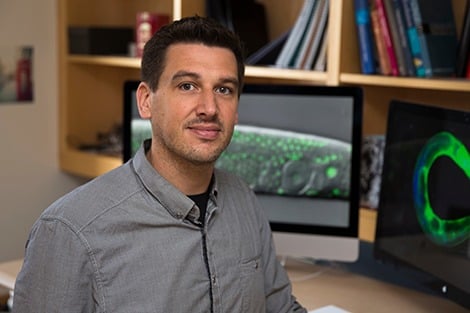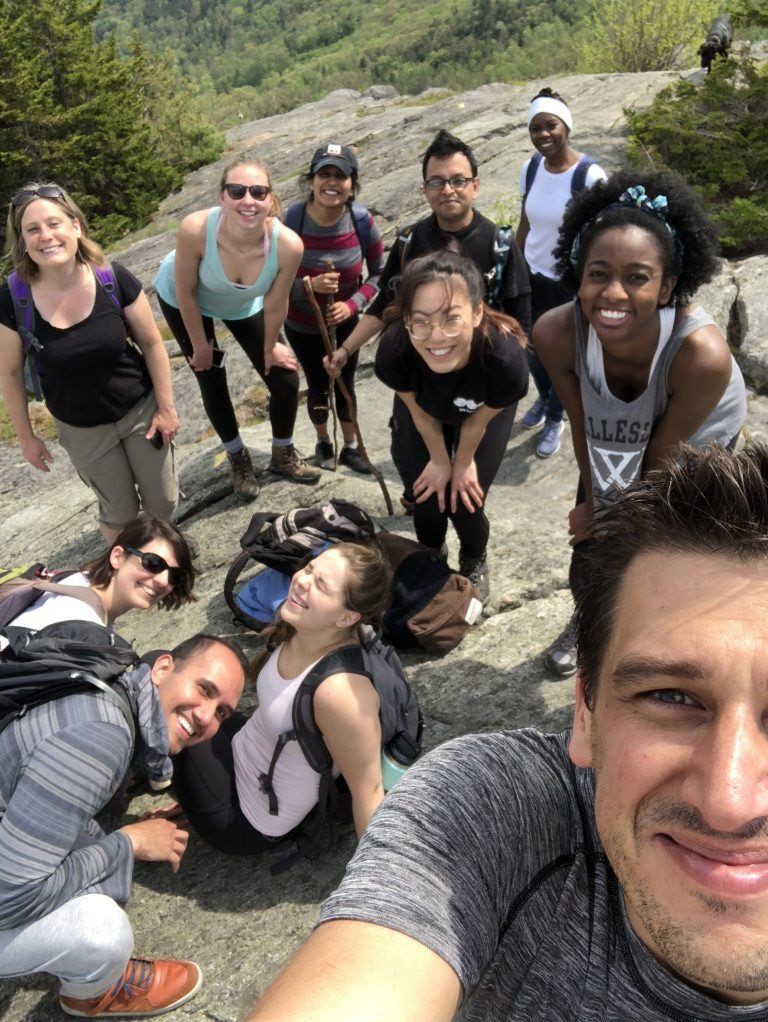Getting to Know Will Mair, PhD
Date Posted: jueves, marzo 02, 2023
Our March 16, 2023 speaker will be Will Mair, Associate Professor at The Harvard T.H. Chan School of Public Health. Will began his training in the lab of Linda Partridge at University College London in England, then moved to California to postdoc with Andy Dillin at The Salk.
Throughout his career he has utilized multiple model systems, discovering links between key signaling pathways and aging in flies, worms, and mammals.
In his independent lab, Will has identified new links between the AMPK pathway, dietary restriction, and aging. He has also opened new areas of aging research, identifying splicing regulators as modifiers of mTORC1. His lab continues to identify mechanisms harnessing the possibility of improving life and health span by manipulating nutrient sensing pathways.
We asked Will to answer the following random non-scientific questions.
What keeps you busy outside of the lab?
I have a three and a half year old son, so I was going to write ‘he does,’ which is true. Then I saw that James Olzmann gave you that answer about his kids, so I was scooped! So, other than chasing chaotic toddlers and watching Paw Patrol (it’s all about the ultimate rescues) one of my passions is the Liverpool Football Club (a.k.a. soccer). This season that has only been generating pain!
What is a good habit and bad habit you have?
Hmmm. Well, the bad habit is that I definitely talk way too fast, especially when I get excited about science. So if my talk starts to speed up, you’ll know I am into it. A good habit? I’m someone who gets bored quickly, so I often change between different hobbies and get obsessed with one thing, then get over it. Maybe my good habit is knowing when to quit and move on?! That’s a useful skill in science too.
What is unique about the Mair lab environment, such as funny lab tradition?
The very first year of my lab, the department held a Halloween costume contest and my lab and I didn’t dress up. I think we thought we were a little too cool for it. My Chair, rightly so, told me off, so every year since then my lab has gone all in and we’ve done some cool things. The tradition is that I never know what we’re going to do until about an hour before when I'm handed an outfit. Usually, somehow, I become the butt of the joke, which is fine by me. So, I ‘ve been dressed up as some pretty weird things!

What is something memorable or funny that happened to you in the lab during your trainee or PI days?
At one of the Halloween contests I was dressed in a full lion outfit. After winning, the lab and I decided to go to a local Irish pub to celebrate. We played pool on their table but as the night went on, the locals started pouring in and wanted ‘their’ table back, however their rules were that they had to win it. Oddly, being dressed as lion helped my pool game and Heather, a former postdoc and I, somehow managed to keep the table all evening while maintaining our costumes, much to the confusion of the regulars.
What profession do you think would you have if you weren’t a scientist?
Journalist. I did journalism for a year between undergrad and my PhD and nearly didn’t go back to science. I've also done some science writing, mainly to make extra cash when I was a postdoc. I think right now especially, good science journalism is critical. If I were to swap to a different area of science, I’d love to have been a behavioral economist. We have several at our school of public health and I think their work is amazing.
What is one piece of advice you have for trainees (grad students/postdocs)?
Don’t focus too much on the end goals such as the fellowship, paper, PhD, job searches, etc. Yes, we need these things to move forward in academia, but if they are totally dominant as markers of how you view your success and self-worth, science loses all of its joy, and you make poor decisions. In general, try to find a question you just can’t stand not knowing the answer too and let that motivate you. Often everything else will falls into place. If you don’t find yourself wanting to talk to lots of people about your project, it’s probably not the right project for you.

